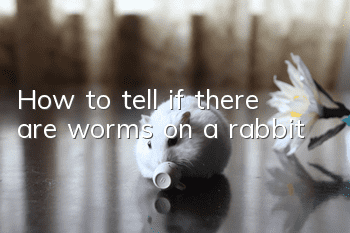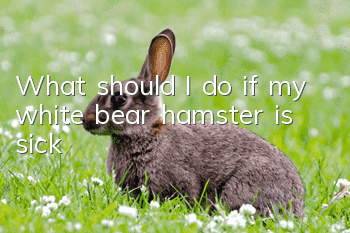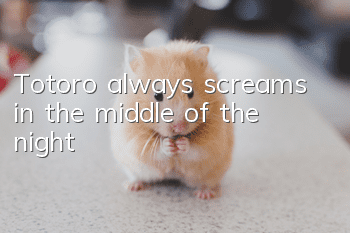How to tell if there are worms on a rabbit

One way to tell whether there are parasites on a rabbit:
1. Observe the size of the rabbit. If there are parasites on the rabbit, it will not gain weight no matter how much it eats.
2. Observe the rabbit’s excrement. The owner can observe the rabbit’s stool. If there are worms squirming in it, it means there are worms on the rabbit.
3. Observe the rabbit’s gastrointestinal symptoms. If there are worms on the body, the rabbit will often have symptoms of diarrhea, constipation, and blood in the stool.
4. Observe whether there are dander, scabs, hair loss, redness or swelling on the rabbit's limbs and around the eyes. If there is no general condition, it means that the rabbit is healthy and free of parasites.
Methods to prevent rabbits from getting worms:
1. Improve the environment
Owners should pay attention to keeping the rabbit cage clean, tidy and dry. Clean rabbit food and rabbit items and dry them in the sun before using them on rabbits. It is recommended that the floor of the rabbit cage be disinfected with fire. Also pay attention to cleaning up rabbit feces every day and washing tableware before feeding. Moreover, the owner must manage the rabbit population well. After weaning, the young rabbits must be raised separately from the older rabbits. If a rabbit is found to have coccidiosis, it must be isolated immediately.
2. Regular deworming
When raising rabbits, you should also pay attention to deworming. You can choose a green pet like a rabbit to help fight coccidia, and strictly follow the usage instructions of the product instructions and Feed according to the dosage. Do not randomly feed deworming drugs such as cats and dogs to rabbits to avoid improper dosage and poisoning of rabbits. After some rabbits consume coccidial products, the flora in their bodies may be disordered. Some probiotics can be fed according to the situation to help the rabbits coordinate the flora and protect their stomach.
3. Improve resistance
In addition, supplement nutrition to rabbits to improve resistance. Then it is necessary to feed the rabbit the correct food, mainly grass with high fiber content, supplemented by nutritious rabbit food, supplemented with sufficient drinking water and an appropriate amount of juicy fruits and vegetables. In addition, the rabbit house should be kept ventilated and dry; a dry environment is not conducive to the development and growth of coccidial eggs; adult rabbits and young rabbits should be raised separately, and the young rabbits after weaning should be immediately separated into groups and raised individually.
- Do honey kangaroos recognize their owners?
- How to gain the trust of guinea pigs
- How big can a milk tea hamster grow?
- Things to note when choosing a golden hamster
- Why don’t rabbits eat grass near their nests?
- What is the personality of the original hamster?
- Will the in-law rat recognize its owner?
- What should I do if my guinea pig is scared?
- Can guinea pigs eat watermelon rinds?
- Will hamsters recognize their owners?



